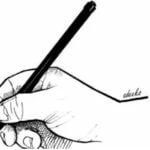Experts in Public Health, Economic Development and the media have charged media practitioners in Nigeria to be more involved in discourses surrounding Sugar Sweetened Beverages (SSBs) to prevent such narratives being hijacked by individuals and groups, bent on using them to suit their whims and caprices .
The experts, who made the call at a one-day capacity building workshop organised for Brands and Health journalists in Lagos, expressed concerns that the Nigerian public is being daily misinformed about issues that have to do with SSBs, since credible media practitioners and organisations have allowed peddlers of such fake news to hijack and control the narratives.
A Keynote Speaker at the event, and lecturer at the Lagos State University (LASU), Dr. Ajibola Arewa, argued that a lot of false narratives, about SSBs have been allowed to fly for so long on the media space.
The Associate Professor in the Department of Finance in the university argued that there are other causes of non-communicable diseases, contrary to widely -held notion, that those ailments are induced solely by consumption of SSBs
He acknowledged the increasing rate of Non Communicable Diseases (NCDs) over time, as evident in World Health Organisation’s figures, which attributed 29percent of deaths recorded in Year 2021 to NCDs, as against 24percent figure recorded in 2011, representing a 5percent increase over a period of 10 years
Dr. Arewa also expressed the belief that this surge could continue if the issue is not holistically addressed.
For instance, he would want the issues of lifestyle, choice of food, and even environments be thoroughly examined, since they also constitute part of those NCDs that have resulted in deaths over the years.
Besides, he would want Nigerians to be fed with appropriate details about sugar intake, and SSBs, especially by those NGOs, calling for heavy taxes on sugar.
“Sugar reduction is not a guarantee that NCDs will reduce. That is why I’ll describe the call for heavy taxes on SSBs as a misplaced priority .
“For instance, contrary to widely -held notion of excessive sugar consumption in Nigeria, Nigeria has not even made the WHO’s benchmark of sugar consumption. It is consuming 21kg, as against WHO’s 25kg benchmark. United States of America (USA) consumers 78kg, while UK, consumers 58kg.
“So taxing SSBs, without taxing alcohol, cigarette, canned food and others will amount to malicious agenda on the part of the regulatory authorities,” he added.
Dr. Arewa therefore described NCDs as a factor of individual’s lifestyles, rather than sugar consumption, noting that consumption of sugar should not be seen in a negative light, if taken reasonably.
“I believe that is why the media must be involved to give the public the correct narrative, by clearing some grey areas in discourses that have to do with sugar.
In his paper, tagged “Lifestyle and Environment in NCD Prevention’, a medical practitioner, Dr. Godswill Iboma, urged media practitioners to sensitise the public on food items that constitute sugar.
“For instance there is the need for our people in the rural areas, especially farmers, to know that consuming yam, garri and other carbohydrates in excess could amount to excessive sugar intake. There is also the need for them to know that, while taking these items, there is the need to complement them with protein, too. They may not know all these, but this is where the media comes in,” he stated.
The Chairman, Brand Journalists Association of Nigeria (BJAN), Mr. Daniel Obi, explained that the essence of the forum was to educate media practitioners, especially those that specialise in reviewing different brands, on this critical issue to enable them properly articulate this to the public.
ALSO READ TOP STORIES FROM NIGERIAN TRIBUNE
WATCH TOP VIDEOS FROM NIGERIAN TRIBUNE TV
- Relationship Hangout: Public vs Private Proposals – Which Truly Wins in Love?
- “No” Is a Complete Sentence: Why You Should Stop Feeling Guilty
- Relationship Hangout: Friendship Talk 2025 – How to Be a Good Friend & Big Questions on Friendship
- Police Overpower Armed Robbers in Ibadan After Fierce Struggle






